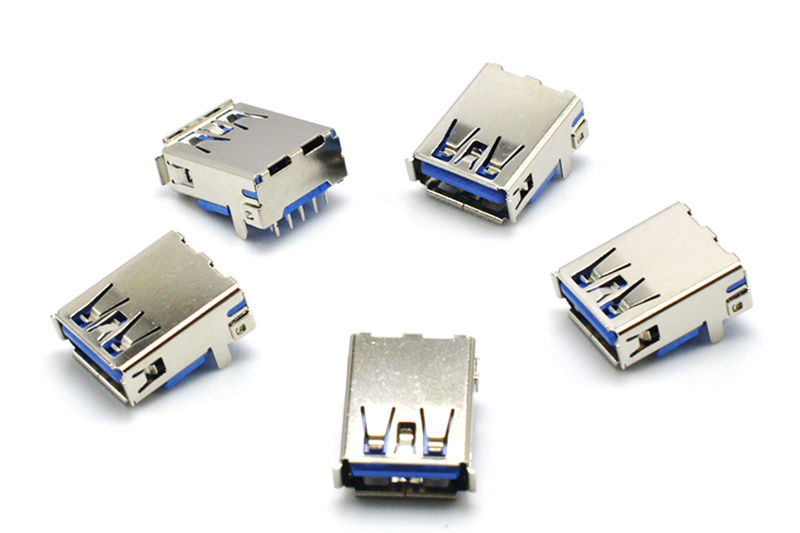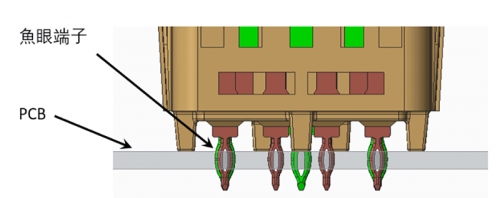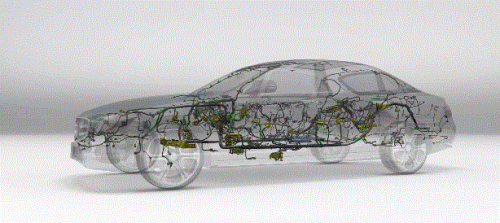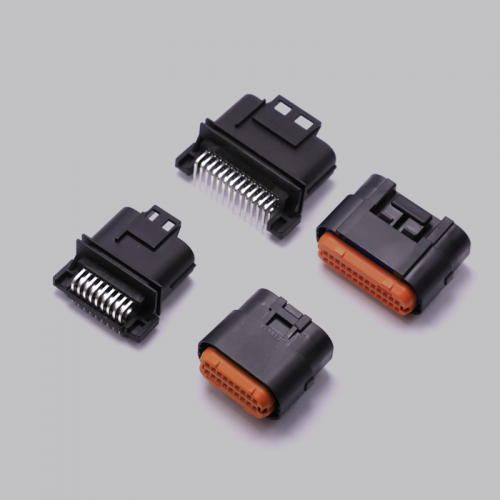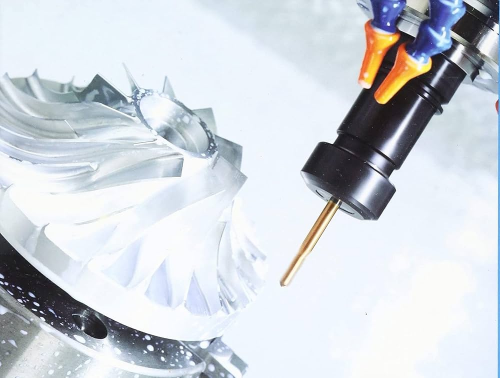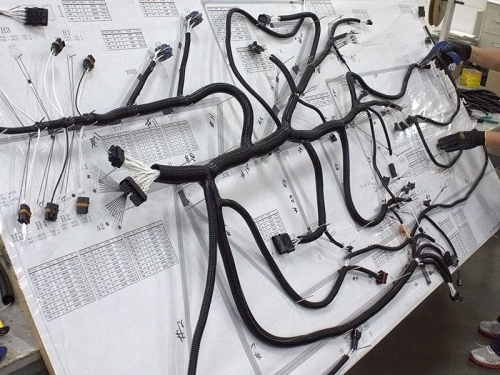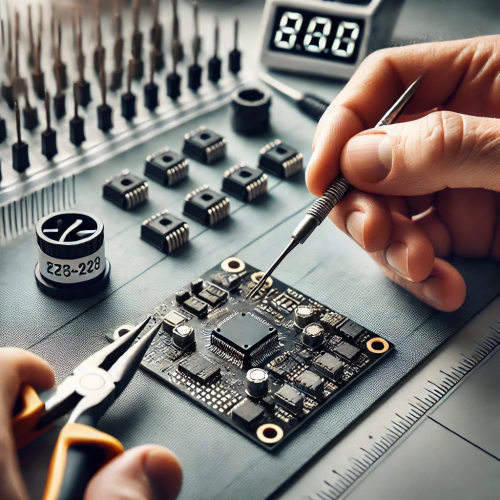Electronic devices are becoming an essential part of our lives. From smartphones to automotive systems and home appliances, there’s one critical component inside all of them: the electronic connector. These small parts not only transmit data, signals, and power but also ensure that the devices work reliably.
So, what makes a great electronic connector? In this article,Konnra will break down the key elements of connector design, their role in electronics, and what to consider when selecting or designing them.
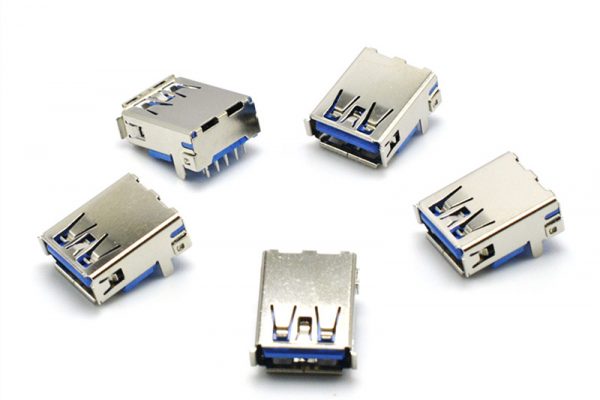
1. What Are Electronic Connectors and Their Role?
In simple terms, electronic connectors are mechanical devices that connect two or more electronic circuits. They allow electricity and signals to flow within devices or between different devices. Connectors can be removable (like USB ports) or permanent (such as soldered connections on PCBs).
Their main functions include:
- Power transmission: Delivering current from a battery or power source to the circuit.
- Signal transmission: Carrying data signals between microprocessors, sensors, and other components.
- Mechanical connection:Ensuring firm contact between parts, reducing resistance and signal loss.
2. Key Features of a Great Electronic Connector
A great electronic connector relies on several critical factors. These features determine its performance and influence the overall reliability of an electronic device.
1. Electrical Performance
Current capacity: The connector must handle the right amount of current without overheating or distorting signals. When choosing a connector, it’s essential to match its current capacity to the power requirements of the application.
Signal integrity: A high-quality connector ensures that signals remain clear during transmission. This is crucial for applications requiring high-speed data transfer, like 5G networks or data centers. Leading electronic connector manufacturers prioritize reducing electromagnetic interference (EMI) and signal reflection to maintain signal integrity.
2. Mechanical Performance
Durability of mating cycles: A good electronic connector should maintain performance even after repeated use. The number of mating cycles refers to how often the connector can be plugged and unplugged without issues. Standard connectors handle thousands of cycles, while premium connectors can exceed 10,000 cycles.
Contact reliability: Reliable contact is essential for proper current and signal flow. To ensure this, connectors often use gold or silver plating on contact surfaces to prevent oxidation and corrosion.
Mechanical strength: The connector must withstand physical stresses such as vibration, pulling, or impact, especially in automotive or industrial applications. Many connectors feature locking mechanisms to prevent accidental disconnection.
3. Environmental Resistance
Temperature range: Electronic connectors must function well across a wide temperature range. This is especially important in industries like automotive, aerospace, or industrial electronics. A high-quality connector should operate reliably from -40°C to +125°C or even higher.
Waterproof and dustproof: Devices used in harsh environments (like outdoor equipment or vehicles) need waterproof and dustproof connectors. The IP rating (e.g., IP67, IP68) defines the level of protection. An IP67 connector is dust-tight and can withstand being submerged in water for up to 30 minutes.
Corrosion resistance: The materials used in connectors must resist corrosion from moisture, salt spray, or chemicals. Surface treatments like gold or nickel plating help enhance the connector’s corrosion resistance.
4. Design Flexibility
Variety of form factors: Electronic connectors come in various shapes and sizes to fit different applications. Whether for tight spaces or unique mounting needs, a good connector must have a flexible design. For example, some connectors are designed with a 90-degree angle for easier installation in tight spots.
Modular design: Connector customization is often required in various industries. Modular connectors allow users to adjust the number of contacts, making it easy to adapt to different applications. This flexibility is ideal for future upgrades or system expansions.
Stable connection: The plug and socket must fit perfectly to ensure stable connections. A poorly fitted connector can lead to signal loss or power failures.
3. Common Applications of Electronic Connectors
Electronic connectors are widely used across different industries. Their design and performance directly impact the quality and reliability of the final product. Here are some common applications and the specific demands they place on connectors.
1. Consumer Electronics
In smartphones, laptops, and smartwatches, connectors need to be compact and lightweight. They should provide efficient signal transmission and power supply. USB-C connectors, for instance, are popular for their fast transmission speeds and durability, making them ideal for mobile devices.
2. Automotive Electronics
Modern vehicles rely heavily on electronics to control everything from engines to braking systems. This means electronic connectors in vehicles must handle extreme environments, including high temperatures, vibrations, and moisture. High-quality automotive connectors are built with waterproof, dustproof, and vibration-resistant designs to ensure stable performance.
3. Industrial Automation
In industrial equipment, connectors must withstand frequent use and harsh environments. Connectors in robotics, sensors, and controllers not only require reliable signal transmission but also exceptional durability. Many industrial connectors are shielded to prevent interference and have locking mechanisms for secure attachment.
4. Medical Devices
In the medical field, reliability and precision are crucial. Whether it’s for monitoring devices or surgical equipment, the connectors must work flawlessly. Medical connectors often require antibacterial surfaces and the ability to withstand high-temperature sterilization.
5. Aerospace and Aviation
Connectors in the aerospace industry face extreme conditions such as high temperatures, vibrations, and radiation. Electronic connector manufacturers in this field focus on producing connectors with high reliability and resistance to harsh environments. Signal integrity and power stability are critical for ensuring that communication systems and control units work without interruptions.
4. How to Choose the Right Electronic Connector
When selecting an electronic connector, you need to balance performance, cost, and long-term reliability. Here are some tips for making the right choice:
1. Match the Connector to the Application
Different applications have specific demands. For consumer electronics, compactness and aesthetics might be key. In contrast, industrial devices prioritize durability and interference resistance. It’s essential to understand where and how the connector will be used.
2. Consider Electrical and Mechanical Needs
Choose a connector with the right current capacity and signal transmission capabilities. Make sure it can handle the electrical load without overheating and maintains mechanical integrity over time.
3. Check Environmental Suitability
If the device will operate in harsh conditions (like wet, hot, or corrosive environments), you must choose a connector that is waterproof, dustproof, and corrosion-resistant. IP ratings and material coatings are essential considerations.
4. Think About Mating Cycles
For connectors that will be plugged in and unplugged often, like charging ports, consider their mating cycle lifespan. High-quality connectors should last thousands of cycles without losing functionality.
5. Conclusion
A great electronic connector does more than just transmit power and signals. It must remain reliable and stable, even in challenging environments. Electrical performance, mechanical durability, and environmental resistance are all essential factors in the design process. By understanding these key features, you can choose the right connector for your project and ensure its long-term success.
Whether you’re a designer, engineer, or just someone interested in electronics, understanding the basics of electronic connectors will help you appreciate the critical role these small components play in our daily lives. And when selecting a connector, always consider your device’s specific electrical, mechanical, and environmental needs.
